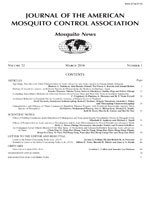Emerging and re-emerging arboviruses continue to be a threat to global public health, and viral surveillance of mosquito populations is critical for mosquito control operations. Due to the tropical climate of many of the affected areas, it may be difficult to maintain a cold chain as the samples travel from collection sites to laboratories for testing. We determined how suboptimal holding temperatures affected the ability to detect viruses in pools of mosquitoes. Adult female Aedes albopictus and Ae. taeniorhynchus individuals were inoculated with chikungunya virus or Venezuelan equine encephalitis virus suspensions, respectively, and placed at 26°C for 8 days. One infected mosquito was then added to a vial of 24 negative mosquitoes and held at −80°C, −20°C, 4°C, 22°C, or 35°C for up to 14 days. Mosquito pools were analyzed for both infectious virus by plaque assay and for viral ribonucleic acid (RNA) with reverse transcriptase–quantitative polymerase chain reaction (RT-qPCR). At higher temperatures, the amount of infectious virus decreased rapidly, but viruses in samples held at 4°C or lower remained relatively stable. In contrast, viral RNA was detectable from pools held at all temperatures and holding times by RT-qPCR. Cycle threshold (Ct) values increased as temperatures and holding times increased. These findings suggest that if viral RNA detection is the goal of surveillance efforts, then mosquito pools do not require storage at ≤4°C. This enhances the feasibility of field-based arbovirus surveillance programs in which maintaining a cold chain may not be a possibility.
How to translate text using browser tools
1 March 2016
Effect of Holding Conditions on the Detection of Chikungunya and Venezuelan Equine Encephalitis Viruses in Mosquito Pools
Elizabeth S. Andrews,
Michael J. Turell
ACCESS THE FULL ARTICLE
It is not available for individual sale.
This article is only available to subscribers.
It is not available for individual sale.
It is not available for individual sale.
arbovirus
reverse transcriptase–quantitative polymerase chain reaction
stability
temperature





